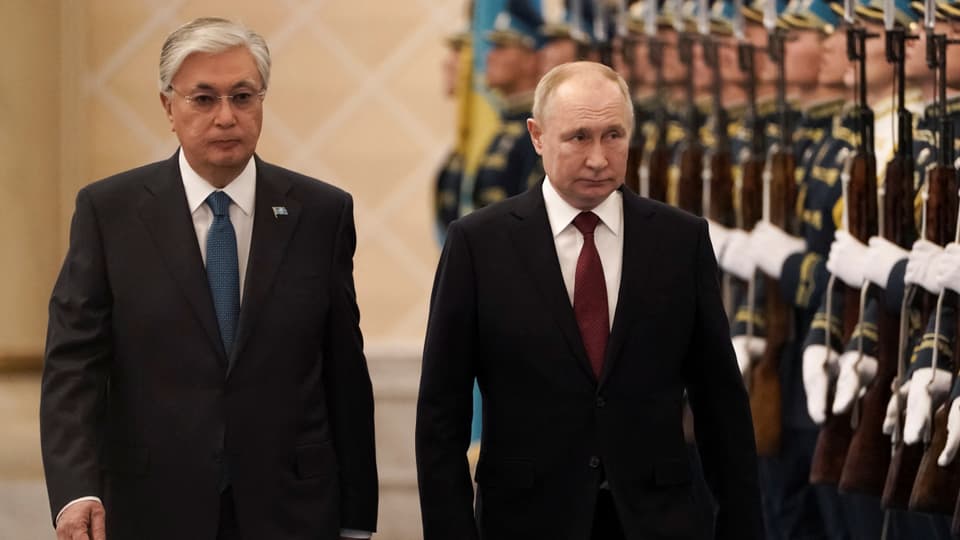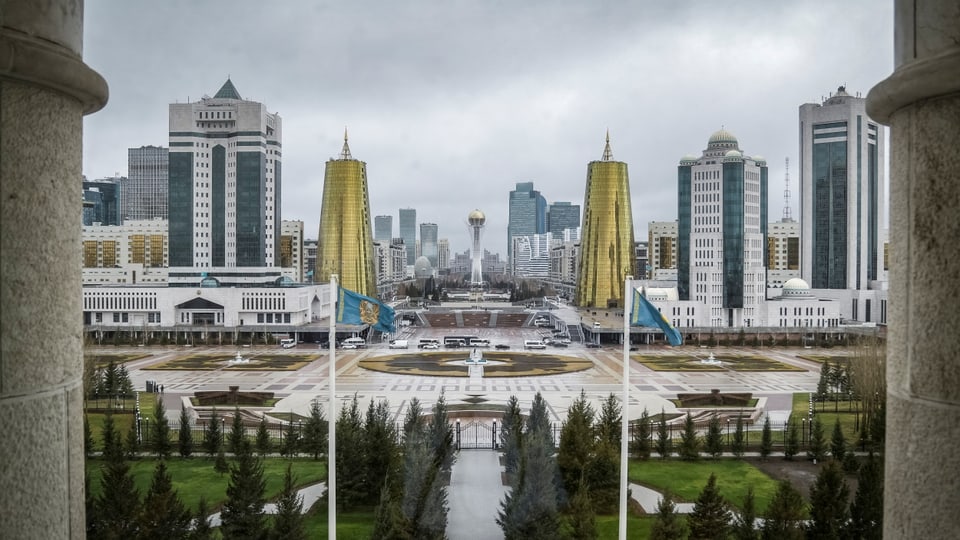Contents
The Central Asian country dropped its nuclear bombs in 1994. Now people in Astana are watching closely what is happening in Ukraine.
Magnificent, futuristic skyscrapers characterize the city center of the Kazakh capital Astana. Bolat Nurgaliev has his office outside the city center. The 72-year-old was an ambassador and deputy foreign minister of Kazakhstan. He was present at a key moment at the end of the Cold War.
The Soviet army had stationed more than a thousand nuclear warheads on Kazakh soil. After the end of the Cold War, they became the property of independent Kazakhstan. In the spirit of international disarmament, the Kazakh government agreed to surrender these warheads. Nurgaliev worked on the relevant contracts.
Legend:
Large gas and oil reserves gave Kazakhstan a lot of wealth. Here is the city center of Astana.
Reuters/Turar Kazangapov
Population defended itself against nuclear weapons
Kazakhstan has responded to the mood of the population, said Nurgaliev. In the late 1980s, a broad citizen movement emerged against nuclear weapons and the nuclear weapons tests conducted by the Soviet military on Kazakh soil. The movement was one of the first civil uprisings of the late USSR. And she was successful.
By giving up nuclear weapons we were able to present ourselves as sensible and predictable.
Nurgaliev admits that real political calculations were also behind the disarmament. “We were a new state, a new member of the international community, and we wanted to make a good first impression,” he says. “By handing over the weapons we were able to present ourselves as sensible and predictable.”
The young Kazakh state was also under considerable pressure. “We were told that if you don’t give up your weapons, no one will invest in Kazakhstan, then you will be isolated,” says Nurgaliev. “At that time we also thought that economic connections would protect us from an attack. So it made sense to accommodate our foreign partners.”
And the Russian bear is lurking
So far the plan has worked. Today, peaceful disarmament is part of Kazakhstan’s proud founding narrative. Governments and corporations from all over the world buy raw materials here, especially oil and gas. They helped make Kazakhstan the strongest economy in Central Asia – and built the capital’s pompous skyscrapers.

Legend:
Just over two weeks ago, a high-ranking government delegation from Moscow visited Kazakhstan. Here Kazakhstan’s President Kassym-Jomart Tokayev with Russian President Putin. It was primarily about “strengthening military and military-technical cooperation,” Putin said after the meeting.
Reuters/Turar Kzangapov
But Russia’s attack on Ukraine has raised uncomfortable questions. In addition to Kazakhstan, Ukraine and Belarus also gave up their Soviet nuclear weapons. In return, they received assurances from the major powers in 1994 that their security would be guaranteed. Russia has now broken these promises.
Astana is therefore closely monitoring what is happening in Ukraine today. Kazakhstan shares a border of almost 8,000 kilometers with Russia. Many ethnic Russians live along this border on the Kazakh side, and some Russian politicians have already expressed territorial claims.
Nobody could have known in 1994 what would happen 30 years later.
When asked about the danger of a Russian attack, Bolat Nurgaliev is reserved. He continues to advise the Kazakh government to this day. This keeps Russia at a distance, but does not want to clearly condemn Moscow for the war of aggression against Ukraine. Nurgaliev supports disarmament in Kazakhstan.
«In 1994 everyone was excited about a peaceful future without bloc confrontation. Nobody could have known what would happen 30 years later,” he says. At that time, disarmament was simply logical and inevitable – even for those who already had concerns back then.

